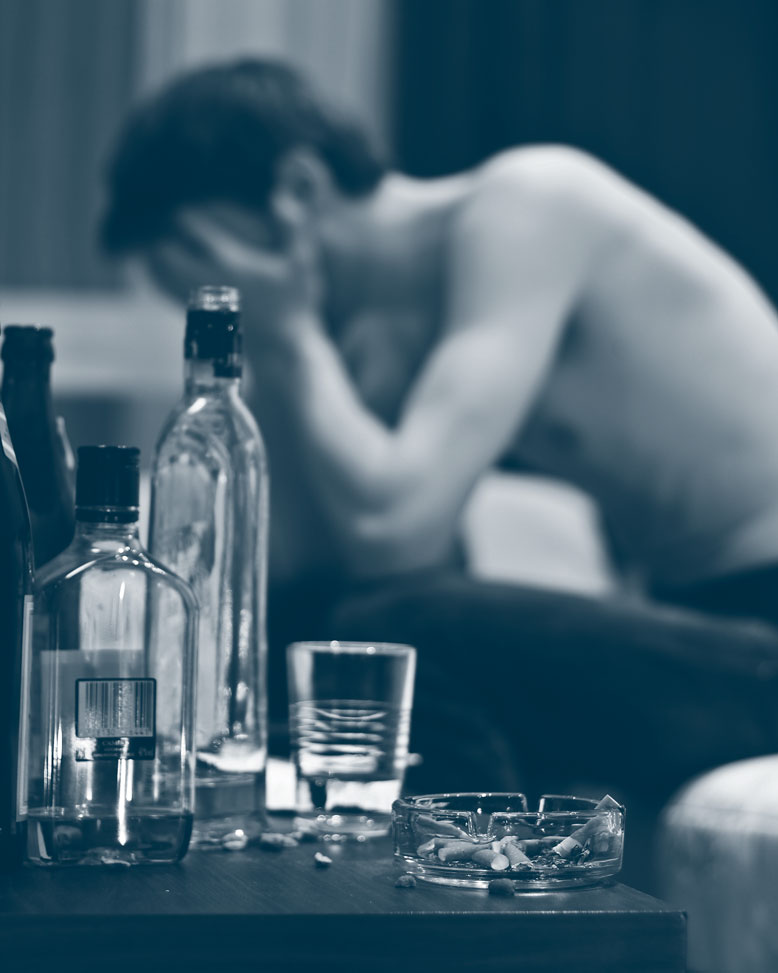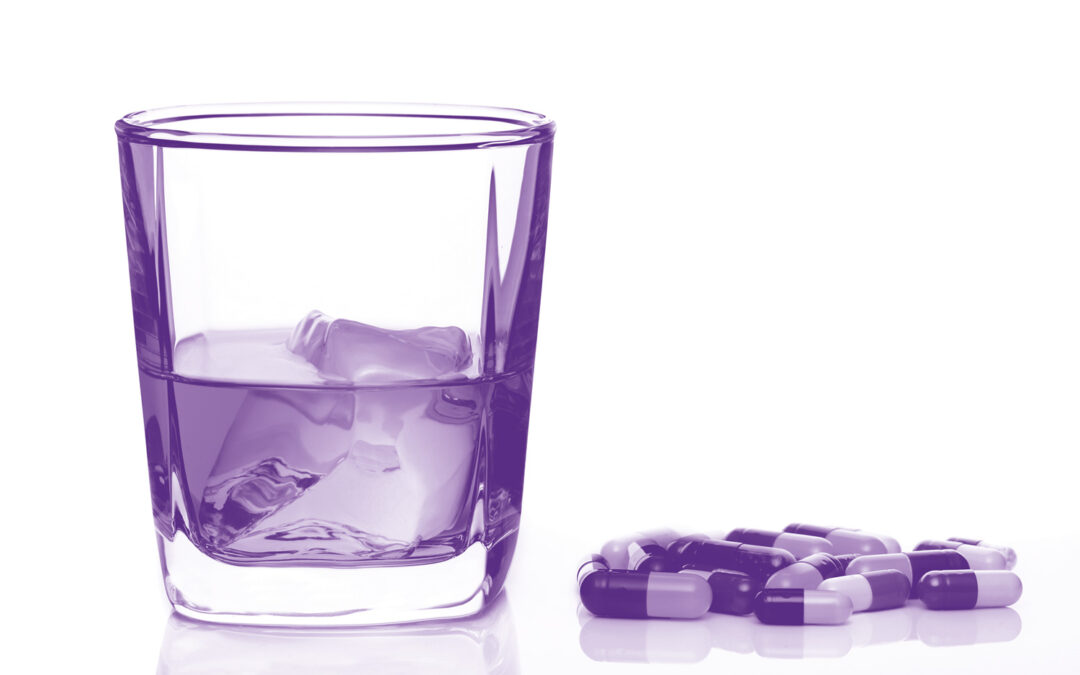Substance Abuse Disorder vs. Addiction
An individual who is using substances or drawn by a desire to use substances is affected by a range of symptoms. The various names of these struggles are nearly as numerous as the symptoms. Find out more about the causes, symptoms, mental health challenges and differences between substance use disorder, substance abuse disorder, addiction and other categories that describe individuals dealing with dependence and/or addiction.

What Is Substance Use Disorder?
An individual who is dealing with health issues or social and emotional issues at home, school or work is dealing with a substance use disorder. This definition is general enough to cover a range of substances, including these common ones:
- Stimulants, including amphetamines, methylphenidate and ADHD medication, such as Ritalin.
- Depressants, including alcohol, benzodiazepines and barbiturates.
- LSD, psilocybin, mescaline and PCP.
- Marijuana
- Opiates, including prescription narcotics and illegal substances, such as heroin.
These are the most common drugs that are abused, but there are a wide range of substances available on the market and illegally. Even legal drugs can be abused if used in excess, so be cautious about overuse of pain medications, ADHD medication and other prescription drugs.
While there are many stages and intensities of use, dependence and addiction, most individuals go through four basic stages: experimentation, regular use, risky use and addiction. Understanding these stages can help you understand common causes and identify early signs of addiction in yourself or a loved one.
The experimentation stage is usually when an individual is first exposed to the substance. If a friend is using a substance, it can seem like an acceptable, recreational activity. Once an individual tries a substance, they are likely to move on to regular use.
Sometime after experimental use, individuals are likely to become physically or mentally dependent on the substance. Typically, a dependence is a strong desire and a pull due to a conditioned response to an event or feeling. It may not have led to the uncontrollable urges that are characteristic of addiction, but regular use is still associated with anxiety, increased use and social withdrawal.
Many individuals are pulled into the next stage, which is risky use. A risky use becomes even more focused on the substance and often starts to let go of responsibilities and relationships that aren’t devoted to the substance. This is often when drug dealing, harder drugs and illegal behavior occur.
Finally, the final stage of substance use is addiction. While the two terms are sometimes used synonymously, addiction typically involves a marked change in behavior, increased risk of mental illness and less control of substance use. Addiction can also be described as severe substance use disorder.
Common Causes
It’s difficult to determine the exact cause of a specific substance use disorder case. While experts still can’t predict whether an individual will become dependent on drugs and other substances, here are a few common causes that have led to abuse and addiction:
- Peer pressure
- Parents with substance use disorder
- Depression, ADD, PTSD and other mental health challenges
- Anxiety and stressful situations
All of these factors increase the risk of drug use, but it’s difficult to determine when an individual will progress from one stage of use to the next. Learn how to spot the symptoms of substance use disorder to know when to reach out for help for you or a loved one.
Typical Symptoms
Every substance affects the body in different ways, and not all individuals experience the same symptoms of the same substance. Here are some general symptoms and behaviors that are associated with substance use disorder:
- Changes in mood
- Violent episodes
- Refusing to eat or sleep
- Secretive behavior
- Drug use when alone
- Lack of control of drug or alcohol use
- Social withdrawal
These symptoms may come at different stages and different levels of severity, but many individuals struggling with a substance use issue will display one or more of them. Recognize these signs and reach out for help to avoid a drug dependency becoming an addiction.
Don’t wait until symptoms become particularly severe or until you see every single symptom. Every individual doesn’t experience every symptom. These are just a few typical signs that someone is struggling with a substance. If you’re concerned, even if you only see a single symptom, don’t hesitate to reach out to a qualified counselor.
Mental Health Challenges
Substance use disorder is linked to mental health challenges in two ways. First, individuals who are abusing substances are more prone to experience a mental health challenge. Second, individuals who are experiencing a mental health challenge, particularly depression, anxiety or PTSD, are more likely to abuse substances.
The National Institute of Mental Health considers drug and alcohol addiction to be a mental illness. 7.9 million adults in the U.S. in 2014 had both substance use disorder and another mental health challenge. Facing two or more mental health illnesses is known as comorbidity and makes the road to healing much more difficult.
Substance Dependency vs. Addiction
One of the first steps to recovery is to understand the differences between substance use, dependency and addiction. These names are used interchangeably by some organizations, but they each have important defining characteristics.
Substance use covers all the stages, including experimentation. An individual who is using a substance may be at high risk for dependency and addiction, but may not have reached those stages yet.
Dependency is typically characterized as a physical dependence on a substance. Substance dependency includes the symptoms of withdrawal and tolerance. Once an individual is dependent on a substance, they feel a strong desire to use more, require a larger amount of substance to achieve the same feelings and uncomfortable feelings when not using the substance.
Addiction occurs after the biochemical changes of dependency create behavioral changes. An individual with an addiction will act irrationally in order to receive a substance. It’s characterized as a physical and mental reliance on a substance.
In DSM-V, released in 2013, the American Psychological Association abandoned distinctions between substance abuse and substance dependence. Instead, the preferred term is substance use disorder, which covers the full range of dependence and addiction. The clinical method of describing addiction is now mild, moderate or severe substance use disorder. Many individuals still use addiction, dependence and substance abuse, but a qualified counselor will describe any difficulties with drugs and alcohol with the official term.
Finding Support and Healing
Recovery is typically a multi-stage process. Some individuals require intensive outpatient services, while others find success through day/night treatment options and community housing. If you’re not sure what path to choose, connect with a qualified counselor to discuss your substance use issues or to help a loved one find the road to healing.
Find inspiration in testimonials of individuals who struggle with the same or similar substance issue that is affecting you or a loved one. Many individuals from all walks of life struggle with drug use. Don’t let fear or a stigma prevent you from accessing quality services for someone you know.
The road to recovery from substance use disorder can be incredibly challenging. Don’t let a loved one travel this path alone, but reach out to a qualified recovery center today. Contact us today at Clean Recovery Centers to discover how you can find healing for yourself, a family member or a friend.


